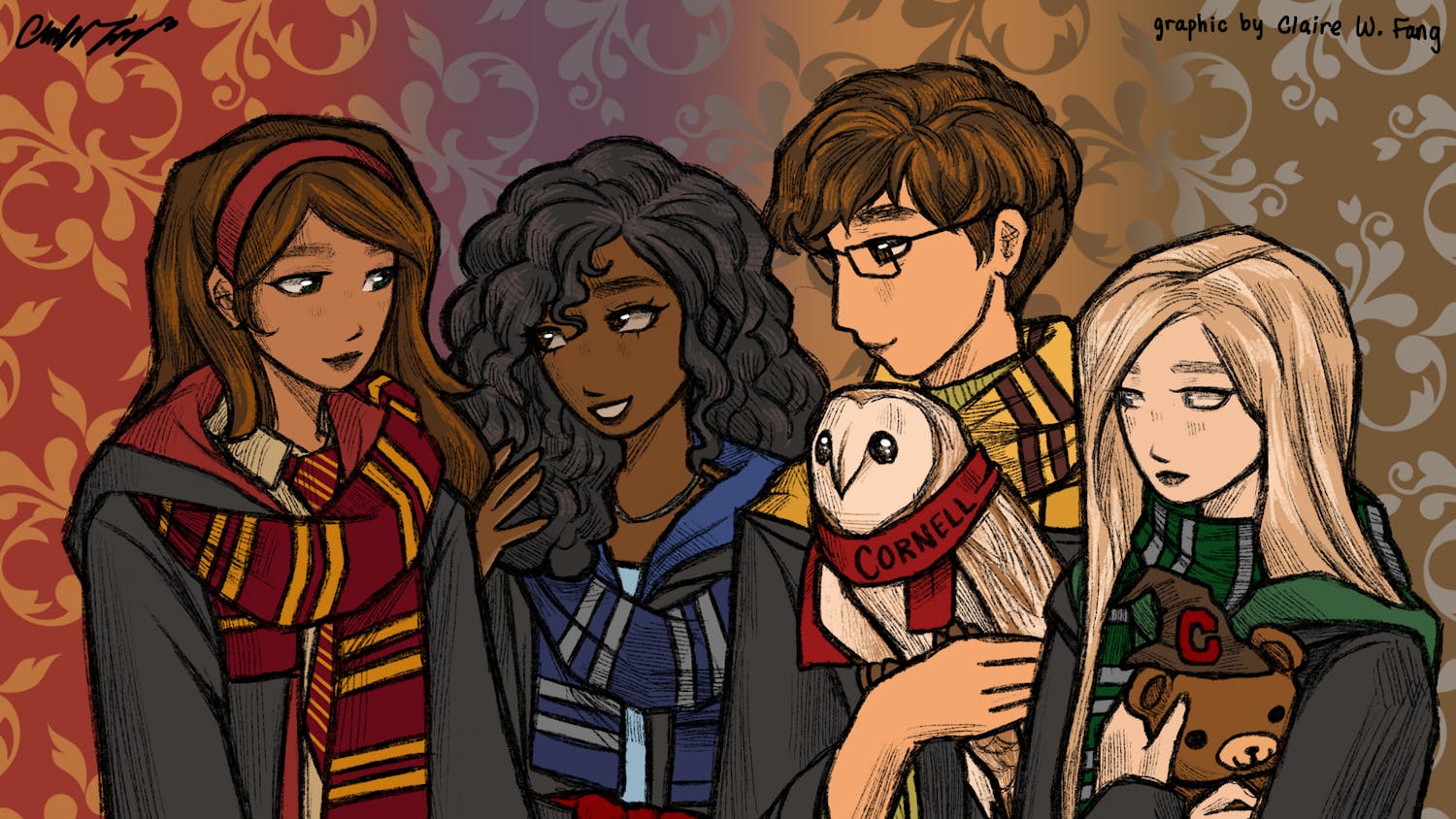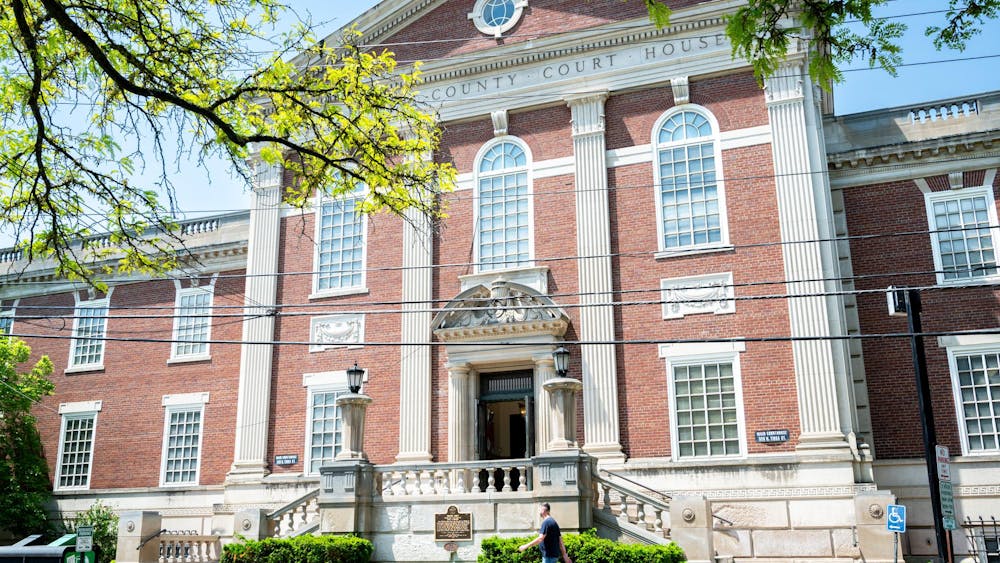At the 2025 National Governors Association dinner, the U.S. Army Choir performed “Do You Hear the People Sing,” a revolutionary anthem from the musical adaptation of Victor Hugo’s Les Misérables. Shockingly, the song, about fighting against tyrannical governments, was approved before the dinner and was not the act of protest it may have seemed to be.
Even though Donald Trump is painting himself as the oppressed, starting with the unauthorized use of this requiem during a Miami rally eight years ago and extending to his glorification of his mugshot, he is exactly the type of tyrant Les Misérables speaks out against: One who betrays our systems of checks and balances, weaponizes our legal system, demonizes free speech, invalidates human identities and cuts critical welfare programs to line the pockets of the rich. In light of these events, the parallels between Les Misérables and the Trump administration are clear.
Les Misérables, first published in 1862 by Victor Hugo and later adapted to a musical, weaves a poignant and emotionally charged web around the life of Jean Valjean, a man incarcerated for 19 years for stealing a loaf of bread to feed his starving family. Within this main story, another unfolds: That of the Paris Uprising of 1832, in which revolutionaries, led by university students and European political refugees, fight against the corrupt monarchy and die in their pursuit of justice. In it, lies a poignant commentary on poverty, the carceral system, corrupt governments, human compassion, and the notion of revolution. Cornell has become increasingly compliant with federal orders, and the themes of Les Misérables are becoming ever more important both on and off campus.
Javert, Kotlikoff and the Equation of Law and Morality
Javert, the central antagonist in Hugo’s story, is a police officer dedicated to upholding the law and the moral order he feels it provides. Javert chases Valjean for decades, convinced that a man who broke his parole is immoral since he committed an illegal action and didn’t serve time for it. However, after Valjean spares Javert’s life on the revolutionary front, Javert commits suicide after realizing that his entire life’s pursuits were antithetical to the common good and blindlessly obedient to the law of a corrupt system. President Kotlikoff, much like Javert, has pledged allegiance to the law, even though current laws and their administrative backings are corrupt and harmful to American democracy and the institution and integrity of Cornell. In his recent Op-Ed in the New York Times, Kotlikoff states that “only by defending democratic values and norms…will safeguard the future of our institutions — and our nation.” This is hypocritical, as by turning down Student Assembly Resolution 8: Calling for Divestment from War Weapons Manufacturers and Resolution 37: Protecting Immigrant Students, he is clearly not listening to the Cornellian constituents whom he is supposed to represent. Kotlikoff is not representing democratic and moral values, and, much like Javert, is instead remaining obedient to laws that will perpetuate harm in academic, local and nationwide communities. The recent statement from the Trump Administration to Harvard University clearly outlines how they want higher education to function: destroying diversity initiatives in the name of merit, all while replacing valuable professors with less qualified ones who share their political ideologies (which follows systems already implemented in authoritarian Hungary). Kotlikoff has been blindly following the laws that will hurt our institution, falsely equating law, morality and the best interests of Cornell and our nation.
Student Protests and the Differing Types of Civil Disruptors
In Les Misérables, Hugo contrasts two types of civil disruptors: Those who are civically disobedient to fight for a better world and those who commit moral injustices for their own benefit. This juxtaposition is presented through the comparison of the Friends of the ABC, the revolutionary group of university students fighting against a tyrannical government, and the Patron-Minette, a gang of criminals and con-men. There is a clear moral difference between the two, yet the ones punished for disobedience are the students, not the gang. Cornell has not learned the difference yet. Students protesting against the genocide in Gaza are being punished en masse, especially international students like Momodou Taal, while the University itself is fighting to evade critical environmental regulations by the Ithaca government and cowering under federal ‘recommendations’ and getting financially hurt anyway. Both are civically disruptive, but the incorrect case is being categorized as justified. Cornell’s administration needs to better differentiate between just and unjust disruptions, or else the Trump Administration will succeed in stripping rights and protections for people and academic institutions.
Les Misérables is, as is most art, reflective and protreptic. Its parallels to our current reality are uncanny, but they provide us with the hope that we have overcome terrible things in the past, and we will keep fighting for justice and peace. The Cornell administration needs to fight to defend democracy, listen to its constituents, and encourage civil action to defend our nation from injustice and authoritarianism. I have no doubts, however, that students and others across the country will continue organizing, and our future depends on it.
Madeline Rose is a first-year student in the School of Industrial and Labor Relations. She can be reached at mir45@cornell.edu.
The Cornell Daily Sun is interested in publishing a broad and diverse set of content from the Cornell and greater Ithaca community. We want to hear what you have to say about this topic or any of our pieces. Here are some guidelines on how to submit. And here’s our email: associate-editor@cornellsun.com.











